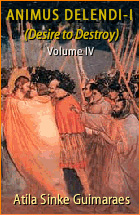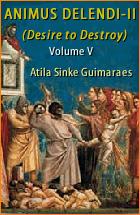NEWS: November 16, 2020
 |
 |
 |
 |
 |
 |
 |
Bird’s Eye View of the News

BERGOGLIO’S NEW INPUT AGAINST CAPITALISM -
Since we commented last week on the form of Fratelli tutti, today I will enter into its content. I will address Francis’ attacks against Capitalism.
Unfortunately, nowadays it has become indisputable that Pope Francis is the world’s most dynamic exponent of the Left. It is common to hear from all different strata of society: “Pope Francis is communist!” This is being said even among the little people, as we saw at the Italian Carnival.
This is a coherent conclusion since he has supported all the communist leaders of Latin America, starting with Fidel Castro and his brother Raul Castro, and going right down the ladder: Daniel Ortega in Nicaragua, Nicolas Maduro in Venezuela, Rafael Correa in Ecuador, Lula da Silva and Dilma Roussef in Brazil, Michele Bachelet in Chile, Evo Morales in Bolivia, Cristina Kirchner and Alberto Fernandez in Argentina, José Mujica in Uruguay.
/bev249_Ham.jpg) He did not fail to give all possible prestige to revolutionary thinkers of Liberation Theology such as Gustavo Gutierrez and
Leonardo Boff. And he also encourages the so-called Popular Movements - which are nothing but communist cells that instigate class struggle - to move forward with their subversive demands. He has held several meetings with these movements at the Vatican and during one of his visits to South America. The official Vatican Press even published a book on them that includes a preface written by Francis.
He did not fail to give all possible prestige to revolutionary thinkers of Liberation Theology such as Gustavo Gutierrez and
Leonardo Boff. And he also encourages the so-called Popular Movements - which are nothing but communist cells that instigate class struggle - to move forward with their subversive demands. He has held several meetings with these movements at the Vatican and during one of his visits to South America. The official Vatican Press even published a book on them that includes a preface written by Francis.
In his previous documents and speeches, he has invariably taken an extreme left-wing position against the economic regime of Capitalism, as I analyzed in previous occasions. (here, here, here, here, here and here)
So, when I say that he has new input against Capitalism in Fratelli tutti, to what am I referring?
Besides his furious and passionate direct attacks against the Capitalist economic system, which continue full steam ahead, I am referring more specifically to Francis’ struggle for:
The end of assistance to the poor
I sustain that Francis now defends the thesis that to give to the poor out of charity is bad because this type of help makes them submissive to the higher classes. Instead, the poor should receive from the rich because it is their right. It is implied that the poor should demand money and aid and, if the rich do not give it, the poor may revolt and take it by force.
In a first text Pope Francis expresses this restriction on giving money to the poor:
“Hence my insistence that, helping the poor financially must always be a provisional solution in the face of emergencies. The true goal should always be to allow them a dignified life through work.” (§ 162)
/bev249_Eli.jpg) This affirmation touches lightly on the problem. The Pope places a restriction. To give money to the poor habitually, as the Catholic Church has always recommended that the faithful do as a work of mercy, is not good.
This affirmation touches lightly on the problem. The Pope places a restriction. To give money to the poor habitually, as the Catholic Church has always recommended that the faithful do as a work of mercy, is not good.
When he points out “the true goal,” he insinuates that the poor have a right to that money, which will become clearer in the texts that follow.
Further, in developing a new concept of “political love,” he accuses those who give money to the poor of being ill-intentioned; they would only want to reduce the poor to a passive position:
“Only a gaze transformed by charity can enable the poor to be recognized and appreciated in their immense dignity … and truly integrated into society. Such a gaze is at the heart of the authentic spirit of politics. It sees paths open up that are different from those of a soulless pragmatism. It makes us realize that, in the face of the scandal of poverty, we cannot promote strategies of control that only tranquilize the poor and render them tamed and inoffensive. How sad it is to see that, behind a supposed altruism, the other person is reduced to passivity.” (§ 187)
So, here we find two violent accusations:
First, all the charitable acts we make to assist poor people in their needs are considered inauthentic, false and hypocritically self-interested. According to Francis, these noble actions would actually not be noble and laudable, but would only be done to keep the poor anesthetized so as not to create problems for us. I believe that this is a grave misinterpretation of reality. The charity made by individuals and associations is mostly motivated by an authentic desire to relieve our brothers from the misfortunes they suffer.
Second, the actions of charity and relief carried out by governments have an analogous noble goal, although less noticeable because of their impersonal nature. Nonetheless, every Western man who does not suffer poverty considers favorably his government’s efforts to help the poor in his own country or abroad.
We see, therefore, that Pope Francis greatly distorts the reality when he indiscriminately labels all the actions of charity we make as hypocritically intended to keep the poor quiet and tamed. It is an accusation not so different from that of Marx calling Religion the “opium of the people.” Here, the Pope has transferred that accusation to the upper and middle classes of the West. He is actually accusing our charity of being the “opium of the people.”
A few paragraphs later, he becomes even more aggressive:
“We are still far from a globalization of the most basic of human rights. That is why world politics needs to make the elimination of hunger one of its principal and imperative goals. Indeed, when financial speculation manipulates the price of the food, treating it as any other merchandise, millions of persons suffer and die from hunger. At the same time, tons of foods are thrown away. This constitutes a true scandal. Hunger is criminal, food is an unalienable right.” (§ 189)
/bev249_Red.jpg) Now, the communist intentions of Pope Francis become clearer. He raises the banner for the multitudes to revolt against those who are not hungry. To have food is “an alienable right” and if someone does not have it, this is because someone else is criminally preventing him from eating.
Now, the communist intentions of Pope Francis become clearer. He raises the banner for the multitudes to revolt against those who are not hungry. To have food is “an alienable right” and if someone does not have it, this is because someone else is criminally preventing him from eating.
We have a Pope who, instead of promoting peace and harmony between the social classes, is acting as a dynamic agent to turn one class against the other.
These bold affirmations bring to mind another line of Francis where he wrongly interprets the teaching in the early Church:
“This led them to think that if one person lacks what is necessary to live with dignity, it is because another person took possession of it.” (§ 119)
Again, Pope Bergoglio is repeating the thesis of another communist, Proudhon, who affirmed: “Property is theft!”
The radical consequence of this papal thesis is that if a man has money and another does not, if one has food and another does not, the former stole from the latter. It is a statement that could be in L’Internationale Communiste.
It is tragic to see a Pope assuming the ideals of Communism in one of his encyclicals in order to try to destroy the social-economic system that rules in the West, Capitalism.
Communist in ideas, communist in the means – the promotion of class-struggle – and communist in the goals – the destruction of Capitalism: This is a partial conclusion of what Fratelli tutti teaches us.
But, there are still other points to address…
Continued

Unfortunately, nowadays it has become indisputable that Pope Francis is the world’s most dynamic exponent of the Left. It is common to hear from all different strata of society: “Pope Francis is communist!” This is being said even among the little people, as we saw at the Italian Carnival.
This is a coherent conclusion since he has supported all the communist leaders of Latin America, starting with Fidel Castro and his brother Raul Castro, and going right down the ladder: Daniel Ortega in Nicaragua, Nicolas Maduro in Venezuela, Rafael Correa in Ecuador, Lula da Silva and Dilma Roussef in Brazil, Michele Bachelet in Chile, Evo Morales in Bolivia, Cristina Kirchner and Alberto Fernandez in Argentina, José Mujica in Uruguay.
/bev249_Ham.jpg)
On his trip to Bolivia, Francis was decorated with a Crucifix set on a hammer & sickle
In his previous documents and speeches, he has invariably taken an extreme left-wing position against the economic regime of Capitalism, as I analyzed in previous occasions. (here, here, here, here, here and here)
So, when I say that he has new input against Capitalism in Fratelli tutti, to what am I referring?
Besides his furious and passionate direct attacks against the Capitalist economic system, which continue full steam ahead, I am referring more specifically to Francis’ struggle for:
- The end of the Western lifestyle, referring here not to its bad and immoral aspects, but rather those good elements that still reflect Christian Civilization (§§ 17, 22, 24, 30,
33, 36, 39, 41, 43, 49, 113, 114, 117, 151, 215, 217, 219-221);
- The end of the concept of the nation and its correlated patriotism (§§ 7, 11, 27, 35, 83, 86, 96, 99, 121, 124, 125-127, 130, 138, 141, 142, 146, 153, 159, 171, 172, 192);
- The end of assistance to the poor, in the sense that the poor should not be helped out of charity but rather as a right they should demand.
The end of assistance to the poor
I sustain that Francis now defends the thesis that to give to the poor out of charity is bad because this type of help makes them submissive to the higher classes. Instead, the poor should receive from the rich because it is their right. It is implied that the poor should demand money and aid and, if the rich do not give it, the poor may revolt and take it by force.
In a first text Pope Francis expresses this restriction on giving money to the poor:
“Hence my insistence that, helping the poor financially must always be a provisional solution in the face of emergencies. The true goal should always be to allow them a dignified life through work.” (§ 162)
/bev249_Eli.jpg)
According to Francis’ new input, St. Elizabeth of Hungary would have fed the poor just to keep them quiet & out of the way
When he points out “the true goal,” he insinuates that the poor have a right to that money, which will become clearer in the texts that follow.
Further, in developing a new concept of “political love,” he accuses those who give money to the poor of being ill-intentioned; they would only want to reduce the poor to a passive position:
“Only a gaze transformed by charity can enable the poor to be recognized and appreciated in their immense dignity … and truly integrated into society. Such a gaze is at the heart of the authentic spirit of politics. It sees paths open up that are different from those of a soulless pragmatism. It makes us realize that, in the face of the scandal of poverty, we cannot promote strategies of control that only tranquilize the poor and render them tamed and inoffensive. How sad it is to see that, behind a supposed altruism, the other person is reduced to passivity.” (§ 187)
So, here we find two violent accusations:
First, all the charitable acts we make to assist poor people in their needs are considered inauthentic, false and hypocritically self-interested. According to Francis, these noble actions would actually not be noble and laudable, but would only be done to keep the poor anesthetized so as not to create problems for us. I believe that this is a grave misinterpretation of reality. The charity made by individuals and associations is mostly motivated by an authentic desire to relieve our brothers from the misfortunes they suffer.
Second, the actions of charity and relief carried out by governments have an analogous noble goal, although less noticeable because of their impersonal nature. Nonetheless, every Western man who does not suffer poverty considers favorably his government’s efforts to help the poor in his own country or abroad.
We see, therefore, that Pope Francis greatly distorts the reality when he indiscriminately labels all the actions of charity we make as hypocritically intended to keep the poor quiet and tamed. It is an accusation not so different from that of Marx calling Religion the “opium of the people.” Here, the Pope has transferred that accusation to the upper and middle classes of the West. He is actually accusing our charity of being the “opium of the people.”
A few paragraphs later, he becomes even more aggressive:
“We are still far from a globalization of the most basic of human rights. That is why world politics needs to make the elimination of hunger one of its principal and imperative goals. Indeed, when financial speculation manipulates the price of the food, treating it as any other merchandise, millions of persons suffer and die from hunger. At the same time, tons of foods are thrown away. This constitutes a true scandal. Hunger is criminal, food is an unalienable right.” (§ 189)
/bev249_Red.jpg)
Pope Bergoglio offers the faithful communist myths as if they were sound Catholic doctrine
We have a Pope who, instead of promoting peace and harmony between the social classes, is acting as a dynamic agent to turn one class against the other.
These bold affirmations bring to mind another line of Francis where he wrongly interprets the teaching in the early Church:
“This led them to think that if one person lacks what is necessary to live with dignity, it is because another person took possession of it.” (§ 119)
Again, Pope Bergoglio is repeating the thesis of another communist, Proudhon, who affirmed: “Property is theft!”
The radical consequence of this papal thesis is that if a man has money and another does not, if one has food and another does not, the former stole from the latter. It is a statement that could be in L’Internationale Communiste.
It is tragic to see a Pope assuming the ideals of Communism in one of his encyclicals in order to try to destroy the social-economic system that rules in the West, Capitalism.
Communist in ideas, communist in the means – the promotion of class-struggle – and communist in the goals – the destruction of Capitalism: This is a partial conclusion of what Fratelli tutti teaches us.
But, there are still other points to address…
Continued
















